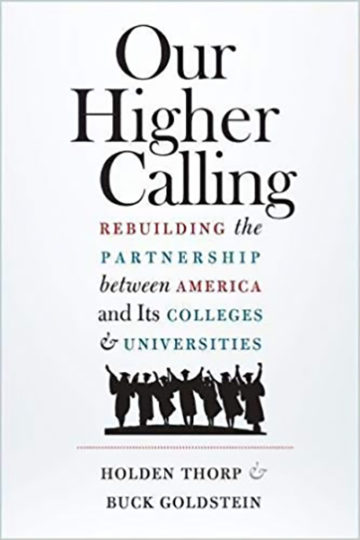There is a growing sense of crisis and confusion about the purpose and sustainability of higher education in the United States. In the midst of this turmoil, students are frequently referred to as customers and faculty as employees, educational outcomes are increasingly measured in terms of hiring and salary metrics for graduates, and programs are assessed as profit and loss centers.
Despite efforts to integrate business-oriented thinking and implement new forms of accountability in colleges and universities, Americans from all backgrounds are losing confidence in the nation’s institutions of higher learning, and these institutions must increasingly confront what has proven to be an unsustainable business model.
In “Our Higher Calling,” Washington University in St. Louis Provost Holden Thorp and Buck Goldstein draw on interviews with higher education thought leaders and their own experience, inside and outside the academy, to address these problems head on, articulating the challenges facing higher education and describing in pragmatic terms what can and cannot change — and what should and should not change.
They argue that those with a stake in higher education must first understand a fundamental compact that has long been at the heart of the American system: a partnership wherein colleges and universities support the development of an educated and skilled citizenry and create new knowledge in exchange for stable public investment and a strong degree of autonomy to pursue research without undue external pressure.
By outlining ways to restore this partnership, Thorp and Goldstein endeavor to start a conversation that paves the way for a solution to one of the country’s most pressing problems.
